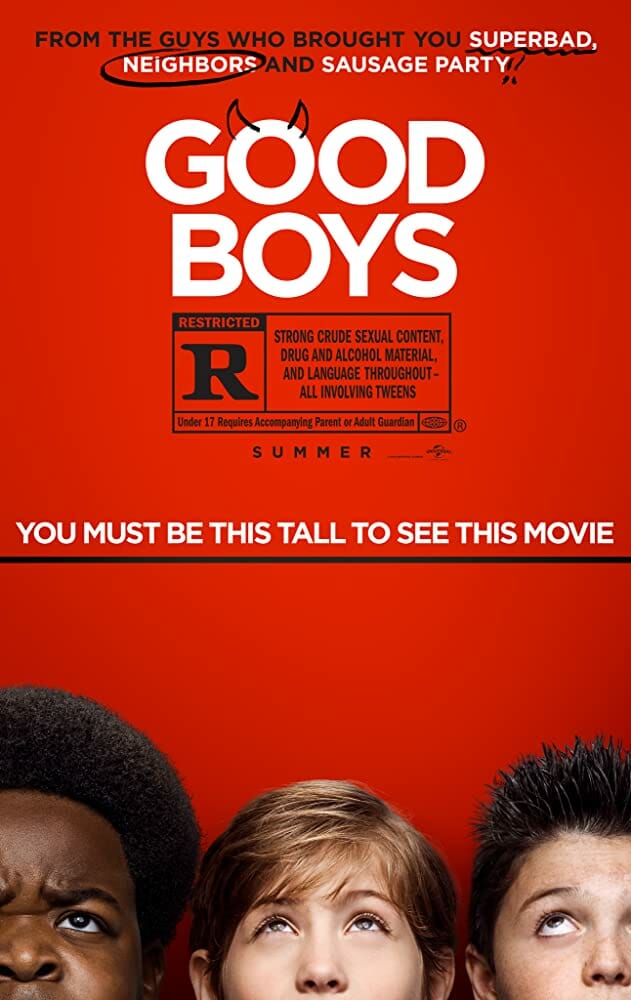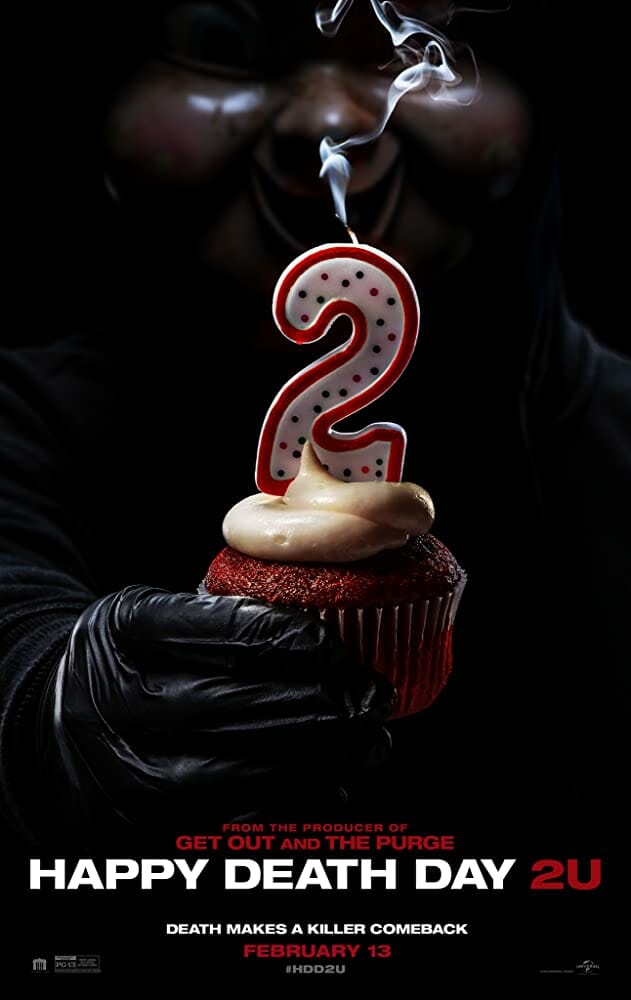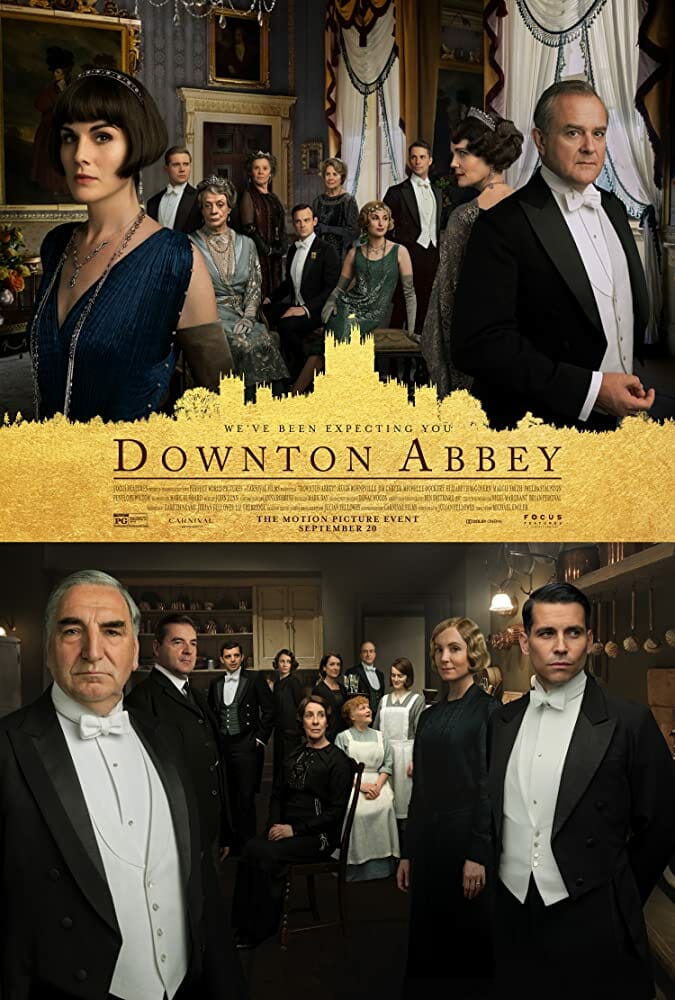Universal Pictures was founded in 1912, making it one of the oldest surviving film studios in the country. In 2004, Universal merged with NBC, and shortly after, the new NBCUniversal was purchased by Comcast in 2011. In 2016, Universal acquired DreamWorks Animation from 20th Century Fox, and released their first film under that umbrella in February 2019. Universal often focuses on mass appeal films with previous releases including Jaws, E.T., the Bourne series, and the ongoing Fast and the Furious franchise.
It was not until the 1990s that Universal began to release LGBTQ-inclusive films. Even then, the 1991 adaptation of Fried Green Tomatoes removed the majority of its lesbian content found in the novel. LGBTQ representation in Universal films has often been a mixed back, including films such as To Wong Foo, Thanks for Everything! Julie Newmar (1995), Mulholland Drive (2001), I Now Pronounce You Chuck and Larry (2007), Bruno (2009), Scott Pilgrim vs. The World (2010), Kick-Ass 2 (2013), Riddick (2013), Legend (2015), Neighbors 2: Sorority Rising (2016), and Blockers (2018).
Glass
Widest Theatrical Release: 3844 theaters
Vito Russo Test: Fail
A sequel to 2016’s Split, Glass continues to follow “The Horde,” one man with several personalities. In Split, one of the personalities is an effeminate character named Barry. Some press outlets referred to the character as gay from comments by actor James McAvoy. Because no evidence of his sexual orientation appeared in the film, GLAAD did not count Barry as gay in Split. He returned in an even less prominent role in Glass, GLAAD did not count the character in its tally.
During the film, one of The Horde’s women personalities flirts with a male nurse, who is taken aback. GLAAD also did not count either of the participants in this scene in its tally.
Good Boys
Widest Theatrical Release: 3458 theaters
Vito Russo Test: Pass
This R-Rated comedy follows three pre-teen boys on a quest to buy a new drone and attend a “kissing party.” They have several encounters with two teenage girls, Hannah and Lily. When the discussion turns to the party, Lily mentions her first “kissing party,” where she kissed another girl. The information is presented casually, and is less of a coming out and more just letting the audience know Lily is interested in women. Near the end of the film, there is a montage in which protagonist Max starts dating his crush Brixlee. After they break up, he begins dating Brixlee’s friend, Taylor. When he and Taylor break up, he sees Brixlee and Taylor walking together holding hands, showing that the two girls are dating.
All three characters – Taylor, Brixlee, and Lily – are presented with their queer identities being very matter-of-fact and fitting into the story’s world but also making their queer identities explicitly known rather than subtextual. GLAAD would like to see more films follow this example.
Happy Death Day 2U
 Widest Theatrical Release: 3212 theaters
Widest Theatrical Release: 3212 theaters
Vito Russo Test: Fail
A sequel to Happy Death Day (2017), the film includes gay character Tim from the original, though his role here is reduced. In the first movie, protagonist Tree realizes that Tim is gay and helps him accept himself. In the sequel, we see Tim with a boyfriend. Surely Tim returning with a new love interest is a small sign of progress, but more is expected than one minute of screen time.
How to Train Your Dragon: The Hidden World
Widest Theatrical Release: 4286 theaters
Vito Russo Test: Fail
The third and final film in the How to Train Your Dragon franchise sees the return of Gobber, a Viking and blacksmith, who serves as a father figure to protagonist Hiccup after his father died. In GLAAD’s 2015 SRI, Gobber was counted as a gay character in the second Dragons film based on press and a line from the movie meant to confirm that Gobber is gay. When Chief Stoick and his wife argue, Gobber remarked, “This is why I never married. That, and one other reason.” GLAAD noted in that report, “without the additional context provided by the filmmakers and press, Gobber’s orientation would be no more than an insinuation.” In 2018, GLAAD updated the methodology of this report to address this issue. In past reports, those characters were often counted; this report only counts characters based on what is presented on screen and/or through common-held cultural knowledge of a figure. The Hidden World similarly had one line that could be read as a vague insinuation when Gobber tells another Viking, “It’s not your fault you have the body of a Norse god, I myself have the same problem.” Ultimately, the film missed the opportunity to take advantage of this character and storyline. GLAAD did not count Gobber in its tally.
Last Christmas
 Widest Theatrical Release: 3454 theaters
Widest Theatrical Release: 3454 theaters
Vito Russo Test: Pass
The holiday romcom Last Christmas follows Kate, a woman who is struggling to get her life back on track. She has a contentious relationship with her family, including her sister Marta, who is a lesbian and out to Kate, but not to their parents. About halfway through the film, while at a family dinner, Kate gets into a fight with Marta and outs her to their parents. Kate realizes her mistake later and offers an apology, acknowledging that Marta does not need to forgive her. Marta does eventually forgive and reconnect with Kate, and introduces her girlfriend, Alba, to their parents, who accept Marta and Alba and their relationship.
While the outing by Kate was obviously problematic, it is encouraging to see that she did genuinely regret her rash actions, and to see a happy ending for a lesbian couple.
Little
Widest Theatrical Release: 2667 theaters
Vito Russo Test: Fail
While Little did not include any LGBTQ characters, it did make headlines for a transphobic joke. When Jordan, the harsh tech boss played by Regina Hall, gets chided by a neighbor for kissing her boyfriend in the hallway in front of a child, Jordan mistakes a young girl for a boy in her comeback. When the mom replies (“She’s four!”), Jordan doubles down with an out of left field reply, “Oh. He is transitioning? Well good luck, little fella, I like you. Now your mama’s a different story. If you need a drink, come over little man.” The scene drew criticism from film critics, and co-screenwriter Tracy Oliver denounced the joke saying she did not write it and calling it “insensitive and unnecessary.” Those in the industry should learn from this moment. Transphobic “humor” has no place in film nor in the world.
Ma
Widest Theatrical Release: 2816 theaters
Vito Russo Test: Fail
This horror films follows Sue Ann who lures teens to her house under the pretense of partying. One of the teens, Haley, when meeting protagonist Maggie, compliments her, and follows up with “I’m not a lesbian or anything.” She later introduces her boyfriend as “this gay dude” before he clarifies that he’s “very straight.” Later, Haley kisses Maggie while under the influence. This move appears to be demonstrative of how inebriated Haley is rather than out of any sexual or romantic attraction to Maggie. The idea of two girls kissing at a party just to show how drunk someone is problematic and very dated, as are jokes that imply someone is gay as an insult.
The Secret Life of Pets 2
Widest Theatrical Release: 4564 theaters
Vito Russo Test: Fail
This sequel follows a group of pets in New York, and includes a joke about a rabbit named Snowball. His owner had dressed him in a men’s superhero costume for the majority of the movie, until the end when she dresses Snowball in a dress and puts makeup on him. At first, it appears that Snowball will be upset at the change of style, but instead he declares it “awesome.” It is a small sign of progress for Snowball to be excited about the new look as compared to how this kind of moment has been played before. GLAAD did not count the character in its tally.
Queen and Slim
Widest Theatrical Release: 1715 theaters
Vito Russo Test: Fail
This drama follows the titular Queen and Slim, a Black couple who become fugitives after killing a police officer while on the way home from a first date. While traveling, they stay with Queen’s Uncle Earl, who lives with several women, including Goddess, played by Indya Moore, an actor who is transgender and non-binary. Because the content of the film on-screen does not make any assertions regarding Goddess’ gender identity, GLAAD did not count the character as transgender in its tally.
OPPORTUNITIES AHEAD
Out filmmaker, writer, producer, and director Greg Berlanti is attached to direct and produce a biopic adapted from the book All That Heaven Allows: A Biography of Rock Hudson. The book explored Hudson’s life as a closeted actor in Hollywood and his heartbreaking death of AIDS-related complications in 1985. Universal is set to begin production on romantic comedy Bros, co-written by and starring out actor and comedian Billy Eichner. The film follows two men with a history of commitment problems who attempt a steady relationship. This high profile romantic comedy, from big names like Eichner and Judd Apatow, should usher in more queer films in the genre and from major studios.
In 2002, USA Films, Universal Focus, and Good Machine teamed to form Focus Features. Focus Features produces and distributes its own films, establishing an impressive record of critically acclaimed and popular LGBTQ-inclusive films including Brokeback Mountain (2005), Milk (2008), The Kids Are All Right (2010), Pariah (2011), and Boy Erased (2018), in addition to distributing foreign films.
Captive State
Widest Theatrical Release: 2549 theaters
This post-apocalyptic drama follows a group of rebels trying to fight off their new alien overlords. One the rebel is Daniel, who works in a gay bar and meets others there. It is unclear if Daniel is gay himself or is working at the bar as a cover to get access to the rebels. Unfortunately, he dies before we can discover more backstory. GLAAD did not count the character in its tally.
Downton Abbey
 Widest Theatrical Release: 3548 theaters
Widest Theatrical Release: 3548 theaters
The finale film to the British TV series of the same name, Downton Abbey continues with the Crawley family and their staff as they prepare for a visit from the royal family. The staff includes the family’s gay butler, Thomas. Thomas meets Richard, one of the royal staff who encourages Thomas to meet him at a bar in town. At the bar, Thomas meets another man who takes him to a warehouse meeting full of gay men, a community gathering Thomas has never experienced. Thomas finally feels a sense of freedom, dancing and enjoying himself. The police raid the warehouse and Thomas is arrested, but Richard is able to get him out of jail by using his status as a member of the royal staff. When Richard departs for London, he leaves Thomas with a gift and a kiss. It was a welcome change for a period drama to see Thomas’ more uplifting story and the respect his character was treated with. Downton Abbey is nominated for a GLAAD Media Award.


 Widest Theatrical Release: 3212 theaters
Widest Theatrical Release: 3212 theaters Widest Theatrical Release: 3454 theaters
Widest Theatrical Release: 3454 theaters Widest Theatrical Release: 3548 theaters
Widest Theatrical Release: 3548 theaters










